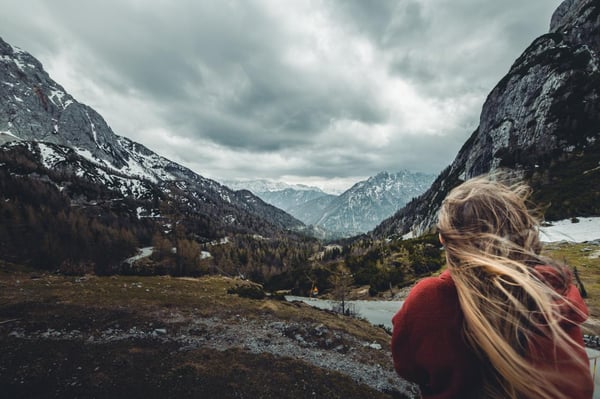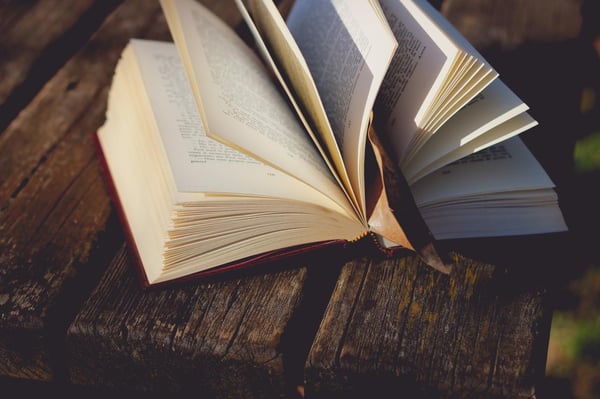
Creative nonfiction invites writers and readers to look through a magnifying glass at the world around them, considering familiar scenes—daily lived experiences—from a new, more intimate perspective.
Despite its grounding in real life, however, creative nonfiction stories are just that—stories. They comprise all of the technical elegance of a well-crafted short story or novel, from characterization to setting, conflict to dialogue, shaped intentionally by authors to capture and communicate the message and meaning at the root of the work.
As you take to our December Creative Nonfiction Competition, (or are just looking for creative nonfiction writing tips) check out the wise words of our Guest Judge for Creative Nonfiction, Rachel Friedman, for inspiration. She spoke with us about her professional path, advice for bridging the gap between personal writing and personal narrative writing, and what future projects she has up her sleeve (hint: a new genre!).
Happy reading.
Critics sometimes argue that creative nonfiction and/or personal narrative writing is “too confessional.” What is your view on the genre, its value, and how to differentiate between a strong creative nonfiction essay and a diary entry, especially for young writers just getting started?
“Too confessional” is, I think, a pretty silly charge to level at a piece of writing. The critic is essentially saying he/she/they wishes a writer hadn’t exposed herself in a way that…what, exactly? Makes the reader uncomfortable? Crosses some invisible line of vulnerability or etiquette? Is narcissistic? Indiscreet? Opportunistic? Plenty of fiction could be deemed “too confessional” by the same subjective standards. Also, though I have not done an exhaustive investigation of this, I’d venture an educated guess that the critique of being overly confessional is often applied more to work written by women than men.
I think the question about an essay versus a diary entry is a separate, trickier one. The simplest difference between a diary entry and an essay is editing. In the former, you throw in every detail. In the latter, you pick and choose. In the former, all details are given equal weight. In the latter, there are choices about structure and emphasis. In your diary, you reveal your whole self. In creative nonfiction, you are crafting a version of yourself to serve the larger story.
How did you discover your love of writing, and how has that passion grown, shifted, or evolved over the years?
I grew up with parents who loved literature, and my father, an academic, particularly instilled in me a deep respect for writing and the writing process. I have written in journals and diaries for as long as I can remember. There was a shift with writing once I decided to try and professionalize – mainly a shift in my work ethic. There is a kind of inspired magic in creativity of any kind, but I think enduring as an artist is much more about simply putting in the hours. You have to treat it like any other job in that way.

Can you give young writers a peek into your writing process for long-form works? How do you approach the creative process from the moment of inspiration, to complete book manuscript?
I’ve written two books, and they have both taken me a long time to finish. And that goes back to the idea of endurance being about putting in the hours and treating it like a job – because it is.
Much of your writing explores travel and your experiences immersing yourself in different cultures across continents. Knowing that our young writers come from over 100 countries, what advice do you have for infusing creative nonfiction writing with a sense of place and culture, whether one’s own or someone else’s?
What travel offers in addition to exploring new places/cultures/food is that it forces you to be in the present moment. Suddenly, all the ordinary aspects of daily life seem new and exciting. But the travel lens can also be used even in your own neighborhood. When you’re trying to infuse your writing with a sense of place and culture, what you are doing is paying careful attention. And this is the same curiosity and attention to detail you bring to all your writing.
In addition to writing, you are also a teacher. How does your role as an educator inform or inspire your creative work?
I love teaching because it means you get to talk about writing and books all day long! I’m not sure it inspires my creative work so much as balances it.
What are you working on right now? Any forthcoming projects you’d like to share?
I’m writing fiction for the first time since graduate school. I thought I’d always want to write only non-fiction, but that just goes to show what happens when you make big pronouncements to yourself about what kind of writer you are!





